Coronavirus: Why is there a test results backlog?
- Published
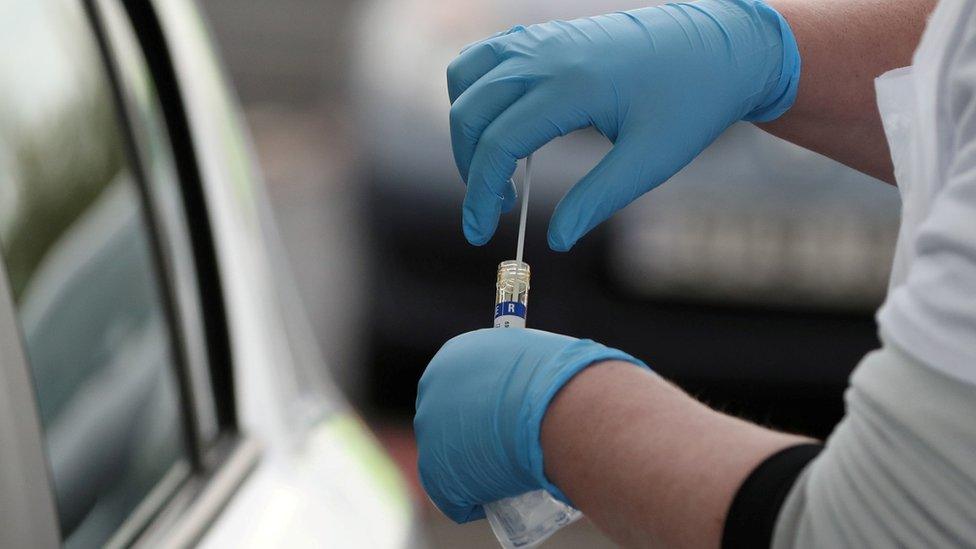
Tests are analysed by UK government and NHS labs in Scotland
After a major spike in demand in August, the Scottish government promised that testing capacity would be increased. Now the first minister has warned of "very serious" concerns over a testing backlog.
How many tests are carried out in Scotland?
Since testing was hit by "exceptional demand" in August after the recent return of schools, the number of tests had steadily increased.
At least, that was true until last week when the seven-day average took its first dip.
In the past week, the average number of daily tests was almost 16,100. That's more than 3,000 less than the week before and almost 6,000 less than a fortnight ago.

Nicola Sturgeon has voiced "very serious concerns" about an apparent backlog of coronavirus test results and the figures show the final week in August was the last time Scotland managed more than an average of 20,000 tests each day.
National clinical director, Prof Jason Leitch, told BBC Radio Scotland's Drivetime that the issue with the backlog was not in the capacity to administer tests but the capacity for laboratories to analyse them.
He added that the Scottish government was working with the UK government to increase laboratory capacity but the backlog could remain for some time.
Walk-through test centres
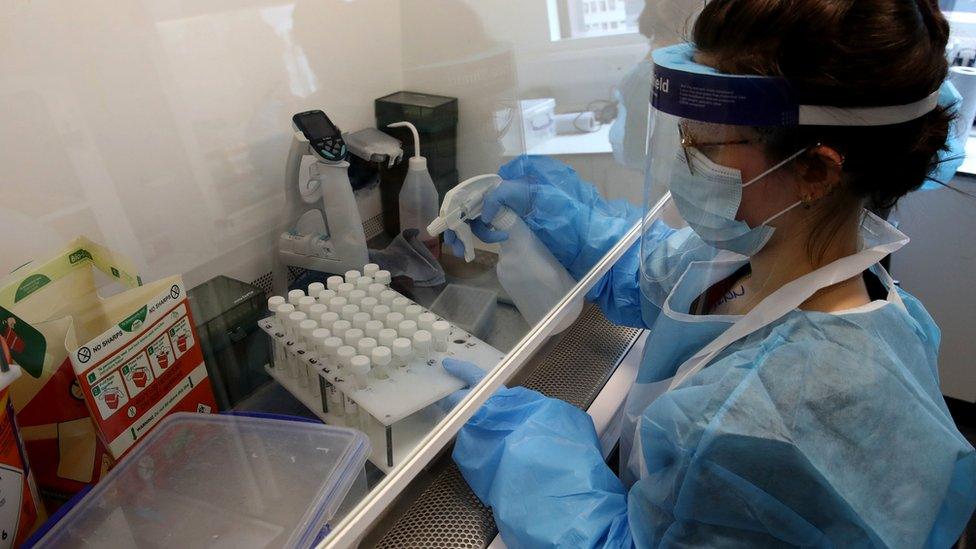
The Scottish government has promised walk-through test centres for areas of the country with low car ownership
As part of the commitment in August to increase testing capacity the Scottish government announced that 11 walk-through test sites would be set up around the country, external.
Since then, a walk-through site has been set up in St Andrews and Health Secretary Jeane Freeman said another would be running in Glasgow by the end of this week.
She added that by the end of September six would be operating across Scotland, focusing on the largest university towns and cities, and more would be operating by the end of October.
The principals of Scotland's 19 higher education institutions have written a joint letter to students as they return to classes over the coming weeks and co-convenor of the Scottish Greens, Patrick Harvie, has warned that university students could stretch testing capacity in the same way that school pupils did.
He said: "It's vital that walk-through testing centres are open and operational in all our university towns to help keep students and staff safe."
Last Thursday, during First Minister's Questions, Nicola Sturgeon committed to providing more details on locations and dates of walk-through centres, external to Mr Harvie by the end of that day.
BBC Scotland understands that no details were provided.
Care homes
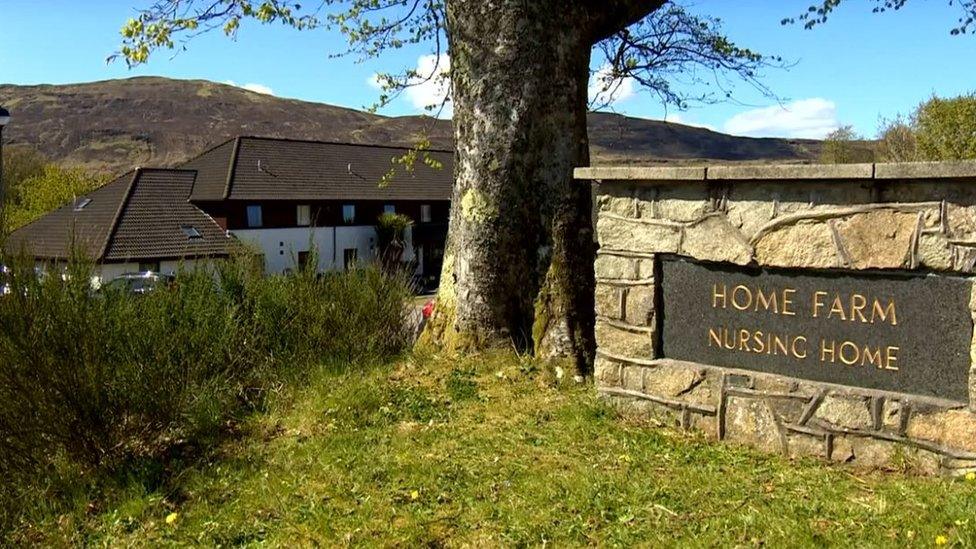
Home Farm care home in Skye was the centre of a coronavirus outbreak
The Scottish government has committed to testing all staff in care homes every week, however, concerns have been raised about this system.
Chief executive of Scottish Care, Dr Donald Macaskill, told BBC Radio Scotland's Good Morning Scotland there were "well documented" problems with the system for booking tests for care workers and that many were having to wait a week for results.
This means care staff could be working without knowing if they have the virus or not.
He said the Scottish government had intervened to increase capacity in recent weeks, however, he warned that the overall picture was worse now than it was two weeks ago.
Prof Leitch said that regular testing of care staff was a surveillance measure and getting results back quickly was not as important as the testing of symptomatic people.
Dr Macaskill warned that the number of cases in care homes was almost 80 and that Scotland risked another serious outbreak if testing was not improved.
Mobile testing centres
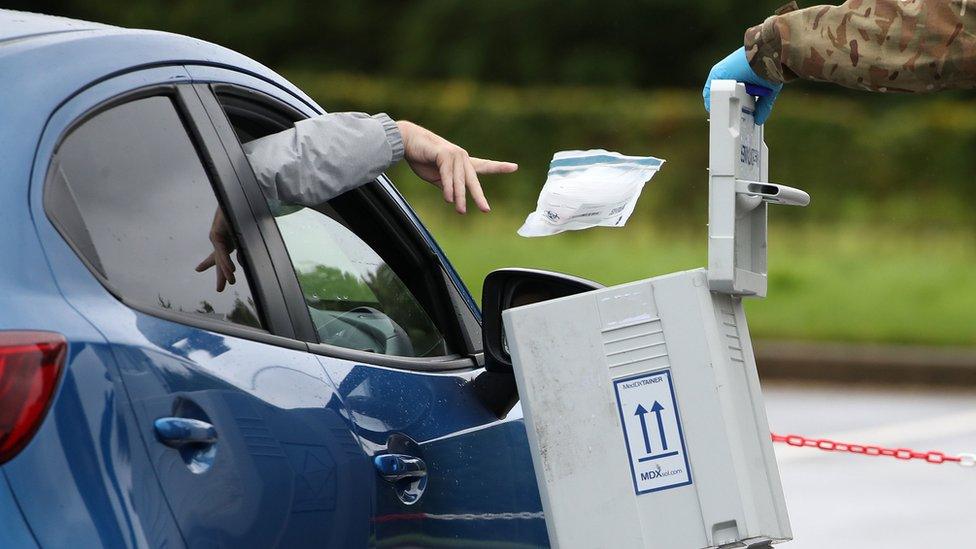
Responsibility for mobile test centres has passed from the Army to the Scottish Ambulance Service
About 100,000 tests had been carried out by mobile test centres when responsibility for the operation passed from the Army to the Scottish Ambulance Service.
These centres have moved into communities, such as Hawick in the Borders and Grantown in Moray, when local clusters were identified.
Capacity has increased to more than 40 sites across Scotland and about 500 jobs were created to operate the system.
- Published14 September 2020
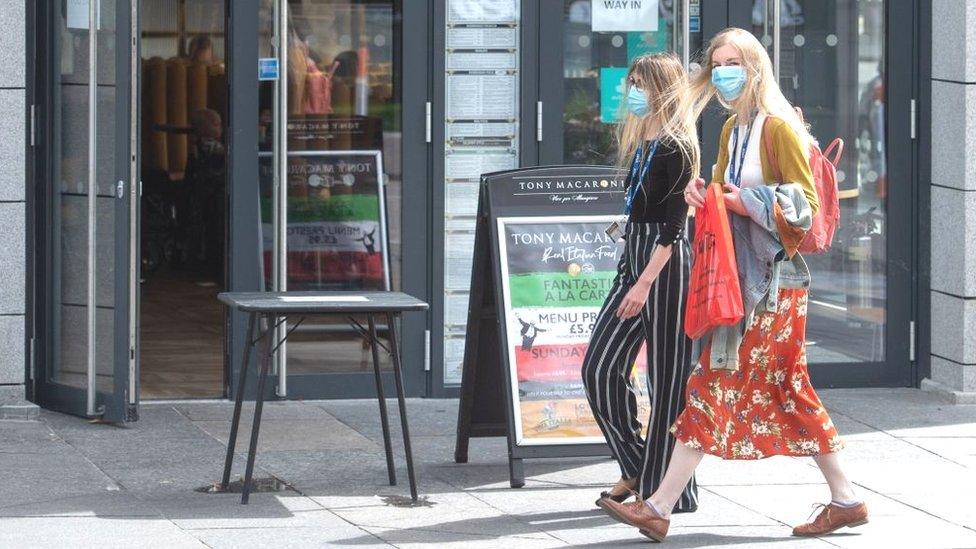
- Published14 September 2020
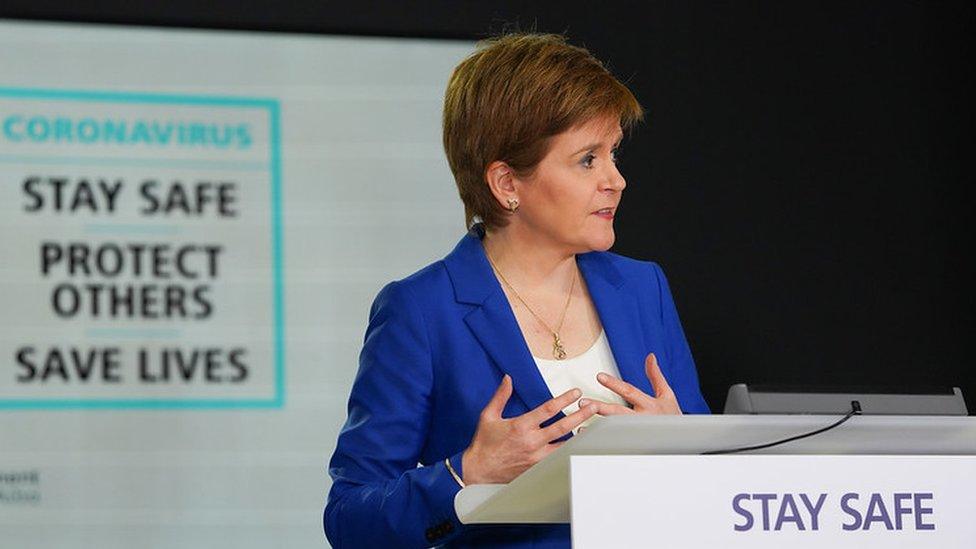
- Published17 September 2020
